The Time Weaver Read online
Page 14
“Sandu—”
“No, Honor. Listen now. These are the things you must remember. Yesterday was the eighteenth of August, in the year 1790. This meadow is called Sanctuary. You named it.” He rolled to his feet in a quick, graceful movement, found his breeches crushing some wildflowers nearby. He dug into one of the pockets. “Take these with you.”
I stared down at the rings he placed into my open palm. Two of them, gold, unadorned. Just like wedding bands. A folded slip of paper beneath them.
“I can’t,” I said, and tried to give it all back. “I can’t Weave with metal, not even paper, I think.”
He rebuffed me gently. “You can, actually. I know that you can, because you already did.” He broke into a grin. “Notice how I said that so well? No fumbling at all, no tripping up on the past and present. I’m getting better at this. You can take the rings and the note, Réz, because you already did take them.”
The tide of my Weave was a vast, airless vacuum reaching for me. It would suck me in.
Alexandru crouched down to kiss my forehead, his fingers splayed in the tangled mass of curls that clung to my cheeks.
“Give the note to me when you return,” he murmured. “You can read it if you like, but it’s for me. The rings are for us both.”
“I—”
“Good-bye, river-girl.”
And I was gone.
He waited for her. He waited all that morning, as the sunrise faded into gloom, and the storm clouds puffed and receded, and then switched direction again to begin a swift, more menacing rolling in from the sea. He left her bell tower only once, to return belowstairs searching for food; Alexandru was ravenous still, most likely from all the days of constant flight—not to mention last night. He went back to the room where they had supped but the table had been cleared, down to the last speck. The chamber stretching before him was stained with colored glass and decidedly lacking in food.
When a girl slipped in behind him he turned to face her, very much aware of his missing shirt and stockings and shoes, finding her watching him with her back square against the wall.
Pansy-purple skirts, a cinched bodice, a bulky cloth napkin folded up in her hands. She had to be about fifteen or sixteen, with dark eyes like the fiddle-boy, artfully arranged ringlets of powdered hair … yet she looked like nothing so much as one of the peasants from his own mountains, a child of the sun and fields.
Perhaps it was only her frock. His people wore bright colors, too.
They regarded each other in silence. Then the Roma maiden thrust out her hands, offering him the contents of the napkin: a handful of pistachios, a crusty heel of bread and a chunk of hard cheese scented of marigolds, still in its rind.
Sandu nodded his thanks. Carrying the bundle with him, he climbed back up to the bell tower.
The promised rain of last night swept closer. He followed it as he ate, the slate-gray diagonal smear that bridged the sky and sea, pushing winds ahead of it, churning up the dead leaves in the gutters along the streets, plucking a host of golden-orange ones from the city trees.
He deliberated going to smoke to fetch his satchel before it hit. He had more garments there, a shaving kit, dried fruit, his boots. The temperature was dipping lower and while he didn’t mind yet, it was going to be a true autumn storm, and he’d rather be garbed for it than not. He could get dressed at the palace, find a way to steal out past the guards, and walk back here again.
But what if she came while he was gone? What if she thought he’d left too, for home, and attempted to follow?
Now that he considered it, would she even return here, to this little tower she’d Woven from? He’d seen her leave him on a handful of occasions, but he’d never once seen her return to her place of origination, her—what has she called it? Her Natural Time. It was possible she’d Weave back to some new site entirely. She’d never said how that part of it worked.
Sandu scowled at the floor, eyeing the pistachio shells he’d dropped in a pile, the crumbling lime mortar laid in lines between the pavers.
No. He’d wait here. She’d come back here. He didn’t know how he knew that, but he did.
He perched a hip along the balustrade and watched the storm devour the curve of the horizon, all prospect of the sea and sky erasing into blank gray.
It looked, to his eye, just exactly like an impending obliteration.
The Weave sucked me back. I stood immobile for a moment to adjust to it; the first seconds were always the most disorienting.
I was in my bell tower, with the wind gusting. I was looking inland, at the long, low roof of the row of shops next door: a watchmaker, a haberdasher, a mercer. A clutch of women stood in front of one of the windows below, chattering brightly in Spanish about a hat one of them had bought, the quality of its plumes.
I whirled about. Alexandru was there, sooty clouds looming beyond him. He had balanced atop the railing with one foot up, his back against a pillar; his head had slumped forward and his eyes were closed. That’s all I had time to take in before the headache hit me.
I went to my knees. Through the vicious pain I saw my blood splattering the floor, great big circles of red that splashed back up to fleck my legs.
I don’t know if I made any sound. I couldn’t hear.
But the world tilted suddenly, a nauseating slur of color and light. I glimpsed the clouds again, the inner bowl of the tower ceiling. The cracked wooden beam that had once supported a bell.
My body clenched, another bout of agony ripping through me. My breasts felt warm and wet, warmer than the rest of me, and I realized it was because the blood from my nose now ran down my front.
I was held. I was being carried. More awful shifting light—my head limp against a cool, firm surface. Sandu’s chest.
I didn’t hear his heartbeat but I felt it. It pounded through him and into me, its rhythm carving into me like a path, a deep steady drumbeat that led to merciful darkness.
I followed it so that I wouldn’t have to feel the pain a moment longer.
There was blood everywhere. It soaked the shirt she wore, and her hair, and his stomach and breeches, slipping slick between them. It was an appalling amount, and at first he thought she’d been shot or stabbed, but a frantic quick search of her body showed him no wounds.
It was all a nosebleed. But by the stars, he’d never seen a person lose so much blood from such a thing.
Sandu kicked open the door at the base of the stairs; the hinges failed and the wormy wood crumbled apart. He ducked through the threshold with her, dribbling a trail of crimson through the fresh dust.
Before he’d gone more than ten feet, the Roma emerged from their unknown places to surround him, to touch her sleeves and face, to prattle in their staccato, unknown language and try to pull her from him.
He ignored them, walking more briskly. He made his way to her chamber and laid her carefully atop her bed.
“Aigua,” he commanded, but they were already there with basins and towels.
The bleeding slowed a few minutes later, then stopped, although Honor didn’t wake. Her body was boneless as a doll’s as he lifted her and removed the shirt, mopped the blood from her chest and stomach, careful, so careful with the towel around her face.
From the corner of his eye he spotted the boy pretending to be invisible by the armoire, thin and avid. When he noticed Sandu’s impending snarl, he ducked swiftly back into the hall.
The women found a chemise for Honor, snapped fresh sheets beneath her while rinsing out her hair, for all the world like they’d done this countless times before. One of them had lifted Honor’s arm, was rubbing a damp cloth up and down it to clean the last of the blood when she made a surprised exclamation.
Honor’s hands had fisted with her faint. It was more than a faint, he imagined, it was nearer to a seizure, but now her fingers relaxed enough to show that she was holding something.
It was made of gold. He heard the metal, didn’t see it, until the Roma scowled at it closely and then
held it out to Sandu.
A pair of golden rings. A crumpled piece of paper with writing, speckled red on one side.
He didn’t know the rings, but he knew that handwriting anywhere.
She’d been to see him, after all.
Alexandru blew a breath through his teeth, his gaze drawn back to the bone-white mask of her face. Lips of lavender ice.
What the hell had he done to her?
Worth it.
Two words circling me, repeating themselves, and I didn’t know what they meant but there they were, blooming and circling, persistent in the dark empty stage of my mind.
Worth it.
What was? I wondered groggily. Had I purchased something? Done something? I couldn’t quite recall.
But I was cold. I realized that. So cold I wanted to shiver, but for some reason could not. A whisper began to reach me beyond those words, which were fading now in any case, distant, like they no longer mattered. The whisper grew louder, became a rushing patter of water striking rock and … glass? Rainfall. On walls. On windows.
I opened my eyes. Everything was gray. Even the man seated beside me.
“That,” said this younger, somewhat harder-looking version of Prince Alexandru, “was bloody frightening. Forgive the pun.”
I was in my own bed at the cathedral, and the rain was stinging down hard. Sandu had taken a chair from the corner and pulled it close by. He was wearing Roma clothing and looked extremely fine in it, a tight shirt and wool breeches and a kerchief tied around his neck. In both posture and demeanor he presented a portrait of a rogue at his leisure: eased back in my paisley-striped chair with one leg crossed casually over the other, his hands folded over his stomach. But for the paleness of his skin and the truly inhuman beauty of his face, he might indeed have been one of the Gypsies, those lanky, freeborn men made of sinew and laughter and dark polished glances.
When Sandu turned his head to regard me more directly, however, his expression was far from laughing. It was frozen and fierce.
I lifted a hand to my face, my fingers finding my cheek, my lips and nose, all still there.
“Was it very bad?” I asked, unsurprised at how hoarse I sounded.
“Very,” he said. “Ridiculously bad. I had no idea someone so small could bleed so copiously. I’ve seen stuck boars bleed less. Are you vampir, perhaps?”
My lips twisted into something I hoped resembled a smile. “Not quite. I’ve turned out to be a fiend of a different sort.”
“Honor,” he said, and paused. He seemed to be searching for words. “Did I … do that to you? In the future?”
“What? The nosebleed? No, my prince. That’s what happens every time.”
“Great God,” he said faintly.
“Although this one did seem rather worse than normal.” I touched my face again; all the pain was really gone. “It didn’t used to be so extreme, but as I’ve aged—do you mind? There are blankets in that chest over there. I can’t seem to get warm.”
“As you’ve aged,” he prompted, moving at once with his lithe grace to the Spanish chest. It was pushed beneath one of the windows, and the gray light fell softly pearled across his hair and the breadth of his shoulders.
“The … physical consequences of the Weaves have grown noticeably more severe. It’s one of the reasons why I try to save them up. When the Gift first took me, I could flit here and there without even a suggestion of a headache. But now …” I had to clench my teeth to stop them from chattering. A shiver wracked me, my body finally waking to the fact of the chilled room and the wet September air.
“Yes, now,” Sandu said curtly, shaking out a fleece blanket above me, letting it float down to my body. He tucked in the corners with brisk efficiency, as impartial as a nurse to an ailing child.
I watched him through my lashes. By moonlight and rainlight, the same man, the same lips and eyebrows and tone of voice. The same hands that pushed a fold of fleece beneath my shoulder now, just last night stroking me to heaven, to vibrant, ecstatic life.
Last night. Months ahead.
I’d long since become accustomed to thinking of time as being malleable, and all of us within it as unfixed as toy boats bobbing in the sea. But it was disconcerting, even for me, to know that one day, a year from now, this frozen and savagely handsome male was going to meet me in a forest meadow and feed me paella and kiss me until I melted.
“The rings,” I exclaimed, remembering. “Oh—did they make it? The rings and your note?”
“Yes,” he said. I shivered again, and he folded one of my hands in both of his, looking restlessly back toward the door. “There’s no hearth in here. I want to get a brazier. I think I saw one below.”
“No, I’ll be better soon. I heal quickly, I promise. What did the note say?”
He gazed down at our hands, that odd, frozen aspect of him intensifying. “Would you like to see it?” he asked slowly.
“Yes. You said I could, in fact. In the future.”
He’d kept it in a shirt pocket. The paper had obviously been crushed and then smoothed flat; it resembled a battered leaf. He turned my hand over in his—last night, his palms to mine, our fingers interlocked—and laid the note against my fingers.
I raised it close to my face. Without candles or lamps, the chapel was very dim.
A single sentence, and some unsettling blots of what could only be my blood. But my eyes went straight to that bold, slanted line: True hearts never lie.
A surge of heat took me, nothing at all to do with the blanket.
“What the devil is that supposed to mean?”
I was annoyed. I’d been expecting something along the lines of You Are Destined to Love Her, or She is the One, something grand and romantic. Not this, this enigmatic and frustratingly impersonal remark.
“Shall I tell you what it actually says?” asked the prince quietly, reclaiming my hand.
“Ah! Is it a code, then? Yes. Do tell me.”
“It’s not a code, Honor.”
“Then …?”
“Listen, river-girl. Clearly you don’t know everything about me yet. I’ll tell you what it says, and you will tell me what occurred when you left me this morning. When you went ahead in time. Have we a deal?”
I had learned during my brief night with Future Alexandru. Every second, every movement and sensation had seared into my memory. So when I brought our joined hands up to brush my mouth, it was deliberate.
Without taking my eyes from his, I kissed his fingers, one by one, and watched his gaze begin to silver.
“I like it when you call me that,” I murmured. “Deal.”
CHAPTER FIFTEEN
The hell of Versailles, Zane judged, wasn’t just that Lia wasn’t there with him to laugh and gasp at this feverish fantasia of a royal abode—although, all things considered, that was probably the worst of it. But the other hell, the constant, day-to-day ordinary hell that nipped at his heels here like a mangy, friendless dog was simply the food.
All the lovely, lovely food.
The residence of the king and queen of France seemed to be the center of the universe of flaky, buttery, savory, sauce-dripping grande cuisine.
The fact that he was meeting the leader of a sadistically murderous gang at one of most bedazzling locations on earth did not make the grounds any less spectacular, or the absinthe in his glass less heady with licorice, or the pâté de foie gras on the plate set before him less enticingly creamy.
Murderers, as Zane knew very well, enjoyed a fine meal just the same as kings.
Certainly Versailles was a most elegant place to meet a killer, just as it was a most elegant prison for all the preening lords and ladies forced to dwell here. None of them looked too terribly miserable about it, despite the heat of the day and the fact that they were all seated outside in the Grand Garden awaiting the leisure of His Majesty, who was, naturally, late returning from yet another hunt. No one could dine before Louis, not even the queen, whom Zane had heard whispered was sequestered at he
r make-believe peasant village anyway, playing at being a shepherdess.
The notion of it gave him no little secret amusement. Marie Antoinette shedding her diamonds and satin to mingle with sheep, and Zane the thief donning the same to mingle with her courtiers.
None of whom, at the moment, were allowed to eat or even walk away from the banquet table because the king. Would. Arrive.
So the thirty-two roasted suckling pigs remained uncarved. The forty mauve-and-white iced cakes with their garlands of sugar roses and violets gleamed pristine. All the cheese platters were sweating. Seven of the fifty-five asparagus-and-truffle salads that he could see were beginning to attract flies, but royal pages in turbans had been stationed over them, fanning the insects away as best they could with giant ostrich feathers.
There was nothing to be done, however, about the ice sculptures. The one nearest Zane resembled a thinning, listing heart more than the pair of swans it had been an hour past.
He imagined that somewhere back in the kitchens of the palace was a gaggle of chefs near to weeping with fury.
It was a blinding autumn day, one of those days that had been so rare back in dear old London-town, with a sky like crisp blue linen, white clouds that never amounted to more than a few coy wisps. A company of acrobats was tumbling on the grass before the vast stretch of the table, the gilded horses of the Fountain of Apollo shining so brightly behind them the gold seemed to melt into the water.
At least alcohol was being poured. The trapped nobles surrounding him seemed content enough with that. And surely at least some of them realized how much safer they were here, at this feast they were not yet permitted to touch, than anywhere else in France these days.
Zane, who had been placed near the western end of it all, was pretending to be just as content.
He was very good at pretending.
It was doubtful anyone but the murderer would have noticed how he never truly relaxed in his seat, how his eyes never ceased to take in his surroundings. How he’d refused wine entirely, or how the absinthe he’d accepted in its stead remained practically untouched.

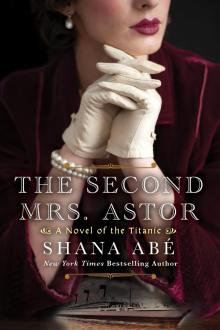 The Second Mrs. Astor
The Second Mrs. Astor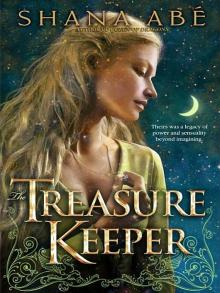 The Treasure Keeper
The Treasure Keeper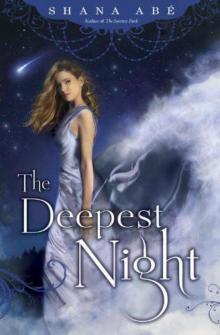 The Deepest Night
The Deepest Night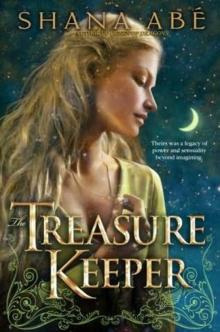 The Treasure Keeper d-4
The Treasure Keeper d-4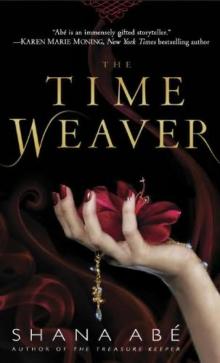 The Time Weaver d-5
The Time Weaver d-5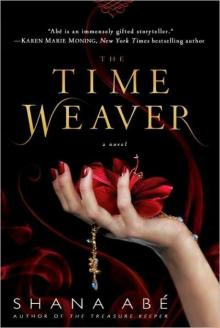 The Time Weaver
The Time Weaver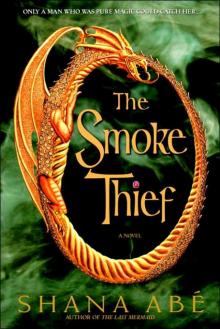 The Smoke Thief
The Smoke Thief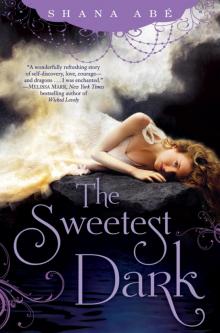 The Sweetest Dark
The Sweetest Dark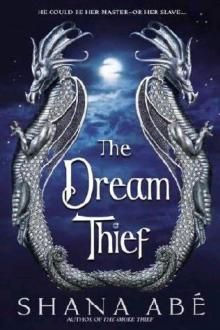 The Dream Thief
The Dream Thief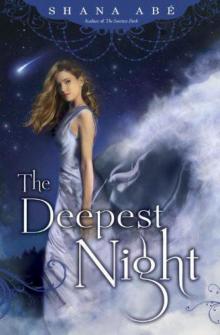 The Deepest Night tsd-2
The Deepest Night tsd-2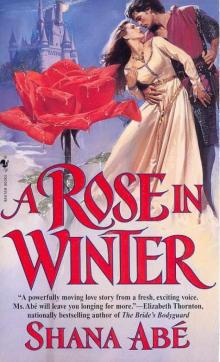 A Rose in Winter
A Rose in Winter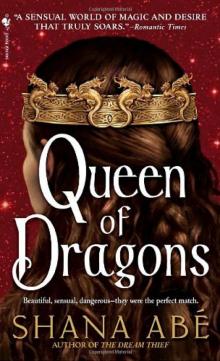 Queen of Dragons d-3
Queen of Dragons d-3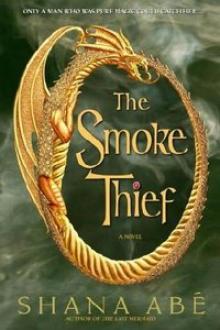 The Smoke Thief d-1
The Smoke Thief d-1